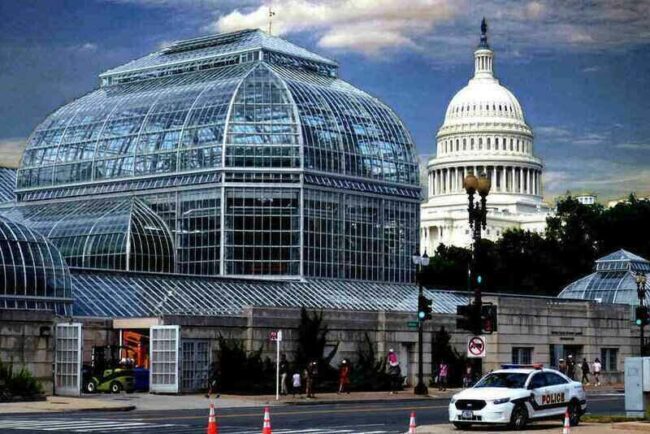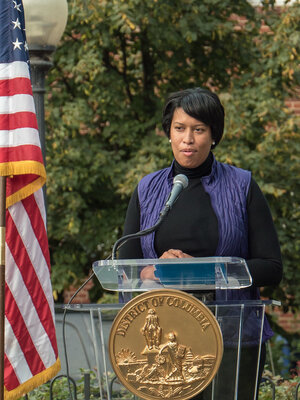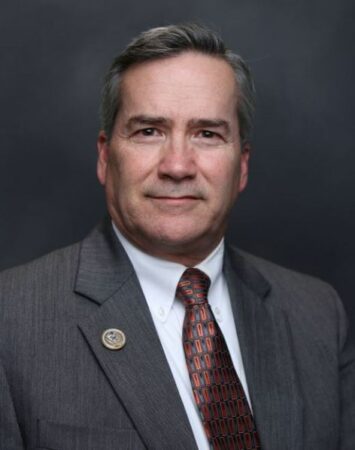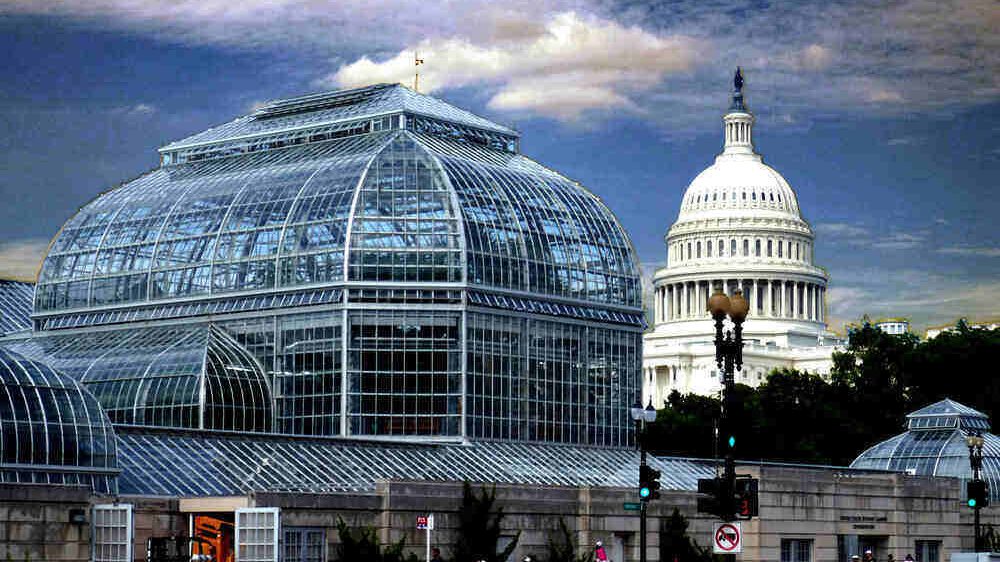|
Getting your Trinity Audio player ready...
|

For the second time in a little over a year, the House of Representatives passed “statehood for Washington D.C.” legislation. In approved in the Senate, the appropriately named bill — H.R. 51 — would finally give American citizens who already bear the responsibilities of citizenship their full rights and privileges.
H.R. 51 first passed on Jan. 26, 2020; 232 Democrats voted Yea, and 178 Republicans, one Democrat, and one Independent voted Nay. Nineteen representatives did not vote. Although the bill advanced to the Senate, under the leadership of Mitch McConnell (R-Ky.), it never reached the floor for a vote.
On April 22, 2021, the house voted 216 to 208; as of April 24, the House of Representatives Office of the Clerk has not published the vote breakdown. If signed into law, the bill would rename DC as “Washington, Douglass Commonwealth” and rename the city’s government to resemble the other states’ legislative bodies.
The bill has advanced to the Senate, its current leader, Chuck E. Schumer (D-N.Y.), promises “we will try to work a path to get [statehood] done,” reports The Washington Post. In a policy statement, the White House asked Congress to pass the legislation as swiftly as possible.
Congresswoman Eleanor Holmes Norton’s statement to the House of Representative:
Congress has both the moral obligation and the constitutional authority to pass H.R. 51. This country was founded on the principles of no taxation without representation and consent of the governed, but D.C. residents are taxed without representation and cannot consent to the laws under which they, as American citizens, must live.
Washington D.C. operates as though it were a state, yet it has no representation in Congress. Its citizens pay federal taxes, must register for selective service but no voice in Congress.
Washington DC: “Taxation Without Representation”
Those living in Washington D.C. cannot control their budget or laws, yet they pay the highest per-capita federal income taxes in the United States. They have no say over how their hard-earned tax dollars are spent, even though they pay more total income tax than those living in 22 other states.
 D.C. voters elect a delegate representative to the House of Representatives — that person can draft legislation but has no vote. This method of representation by delegate means Congresswoman Norton is only a mouthpiece for the wishes of D.C.’s citizenry.
D.C. voters elect a delegate representative to the House of Representatives — that person can draft legislation but has no vote. This method of representation by delegate means Congresswoman Norton is only a mouthpiece for the wishes of D.C.’s citizenry.
Every state has two elected Senators but is no one is representing Washington D.C.’s 712,000 residents. According to the 2019 census, D.C.’s population is greater than Vermont’s at 623,989 and Wyoming’s at 578,759. Based on these numbers alone, Washington D.C. is populous enough to qualify for statehood.
Under the CARES Act, Washington D.C. was not given emergency funds. Wyoming, with the country’s smallest population, received $755 million through the Coronavirus Relief Fund.
On January 6, 2021, when insurrectionists stormed the United States Capitol building, the National Guard did not immediately respond to the threat. Two days beforehand, Mayor Muriel Bowser announced the guard would be present, but its role was to support the Metropolitan Police Department of the District of Columbia officers.
If Washington D.C. were a state, its governor could exercise their right to call out the National Guard. The outcome might have been less devastating if the guard had been fully present.
Statehood for Washington DC Faces an Uphill Battle in the Senate
Washington DC’s population, according to the 2019 census, the majority of the city’s residents are either Black or white, with a small percentage of other races; 45.4 percent Black, 42.5 percent white (37.3 percent Non-Hispanic White and 5.2 percent. Hispanic White). Voters in the city are predominately Democrats.
Based on recent Republican comments and actions, DC has two things they seem to love to suppress — Black communities and Democrats. Proponents are quick to point out the parallels between Republican states restricting voter access with their opposition to Washington D.C. becoming a state. “Both result in fewer people having access to the franchise.”
While the Republicans are calling H.R. 51 a power grab by the Democrats, if the bill were to pass before the 2022 election, Washington DC’s Senators could offset the balance of power. Currently, the Senate has a 50-50 split. Given the history of elections in DC, it is likely their elections would give the House another Democrat and Senate two.
That aside, when the bill to admit Washington D.C. to the union requires a filibuster, meaning 60 votes must be cast in favor of statehood. Not only would that require all Democrats to cast a yes ballot, but a handful of Republicans would also have to choose statehood.
A prime example of those behind the uphill battle is Rep. Jody Hice (R-Ga.), who voiced his thoughts on the subject. His argument against statehood was interesting. Hice indicated  the Founding Fathers did not want Washington D.C. to become the “first among states.” To be the first among equals is to be more important or revered than one’s peers; what Hice seems to be saying is that if D.C. became a state, it would likely become the “best of all states.”
the Founding Fathers did not want Washington D.C. to become the “first among states.” To be the first among equals is to be more important or revered than one’s peers; what Hice seems to be saying is that if D.C. became a state, it would likely become the “best of all states.”
Then he rambled that Washington D.C. would be the only state without an airport, car dealership, or capital city. Other Republicans complained Washington D.C. is not well-rounded or working-class enough to be a state as it does not have any natural resources, agriculture, or manufacturing. Heck, the district does not even have a landfill.
Statehood DC’s website states the fact that residents pay more federal taxes than residents of 22 other states is the reason they can afford to become a state.
The bill’s architecture includes the shrinkage of the district from 68.34 square miles to a two-square-mile that will encompass federal buildings like the White House and Capitol.
Even after being reminded of the outcome separating the district, a state and a federal district, Rep. James Comer (R-Ky.) said statehood for Washington D.C. is “not really about voting representation.” It was about Democrats trying to centralize their power in the district.
Opponents of the bill maintain Washington D.C. becoming a state would be unconstitutional. They contend this because creating a federal district and Congress’s power over it is consecrated on the Constitution.
Advocates for statehood believe Republicans do not see that 712,000 Washington D.C. citizens are taxed without representation. Rep. Jamie Raskin (D-Md.) said they do not see military service without representation, despite tens of thousands who served the United States in every war, all the way back to the Revolutionary War. All they see is what they fear, two new liberal Democrat senators.
Mayor Bowser congratulated the House members who voted in favor of Washington D.C.’s statehood. She said they “made the decision to believe in a stronger, more inclusive democracy.”
Written by Cathy Milne-Ware
Sources:
Statehood DC: Why Statehood for DC
The Washingtonian: DC Statehood Bill HR 51 Has Passed in the House; by Damare Baker
Congresswoman Eleanor Holmes Norton: Norton Releases Floor Statement Before Today’s Historic House Vote on D.C. Statehood
The Washington Post: House Democrats pass D.C. statehood, launching bill into uncharted territory
CNN: Arguing against statehood for DC, congressman says it has no car dealerships (it does); by Daniel Dale
Featured and Top Image Courtesy of Pom’s Flickr Page – Creative Commons License
First Inset Image Courtesy of Mike Rollins’ Flickr Page – Creative Commons License
Second Inset Image by US House Office of Photography – Creative Commons License



